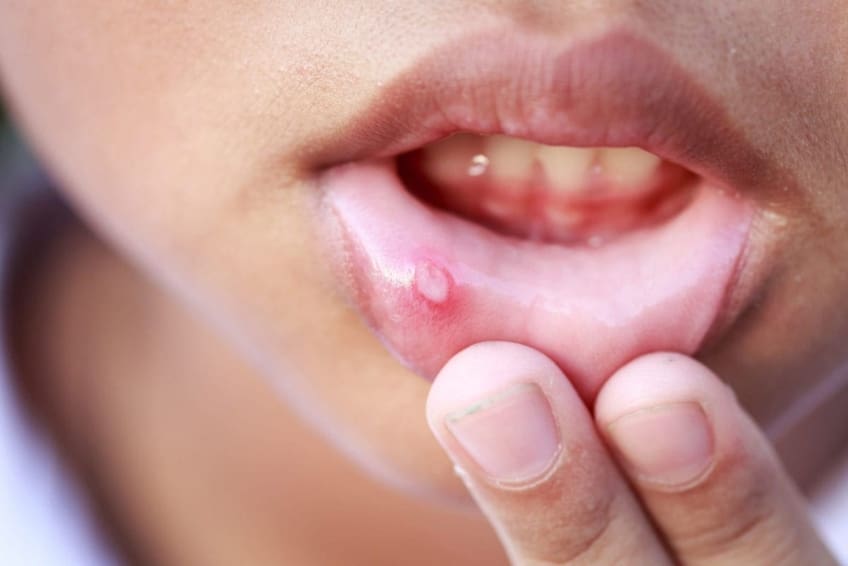
What are canker sores?
Canker sores are small, thin sores in your mouth. You might get them on the inside of your lips or cheeks, at the base of your gums, or under your tongue. Canker sores also are called aphthous ulcers.
Canker sores are different from cold sores (also called fever blisters). Cold sores usually are on the outside of your lips or the corners of your mouth.
Canker sore symptoms
Canker sores are red and often have a white coating over them. You may have discomfort or pain from the sore.
What causes canker sores?
Anyone can get canker sores, but people in their teens and 20s get them more often. They are more common in women than men. Doctors don’t know the exact cause of canker sores. Certain things may increase your chance of getting them. These include mouth injuries, stress, poor nutrition, food allergies, viral infections, and hormonal changes. Canker sores may run in families. They aren’t contagious.
Canker sore diagnosis
Your doctor will look at your sores and review your symptoms. He or she may ask about your health history or take a biopsy of the sore to see if you have a related problem.
You should contact your doctor if your canker sores are:
- Large
- So painful that you can’t eat or drink
- Last longer than 2 weeks
If you have a fever or other sick symptoms when you have canker sores or if you get canker sores more than 3 times a year, you should also contact your doctor.
Can canker sores be prevented or avoided?
You can’t prevent or avoid canker sores, since the cause is unknown. However, there are things you can do to reduce mouth irritation. Avoid chewing gum and eating hard or spicy foods. Brush your teeth with a soft toothbrush after meals and floss each day. This keeps your mouth free of food particles that could trigger a canker sore.
Canker sore treatment
The main goal of treatment is to reduce symptoms until the canker sores go away on their own. Pain medicine can help relieve discomfort and possible swelling of the sore. There are some over-the-counter medicines specific to canker sores. Most of these contain a type of numbing agent to relieve pain. They also can protect the sores from irritation caused by eating, drinking, and brushing your teeth. Ask your doctor or pharmacist if one these products may be right for you.
Your doctor may prescribe a topical medicine or special mouthwash to help.
- The medicine goes directly on your canker sores. Dry the sore first using a cotton swab. Then, use a second swab to apply the medicine. You may need to pull out your lip or open your mouth wide to apply. Keep the sore isolated and untouched for several minutes. This allows the medicine to adhere to the sore. Don’t eat or drink anything for at least 30 minutes.
- Use the mouthwash the same as you would a normal mouthwash. Swish it around in your mouth, especially around the sores, for a few minutes. Then, spit it out or swallow it, based on the instructions. Don’t use a mouthwash that contains alcohol. It can further irritate the sores.
Living with canker sores
There is no cure for canker sores. They usually go away on their own in 7 to 10 days. Treatment can speed this up and/or relieve symptoms. Talk to your doctor if you get frequent, painful canker sores.
Questions to ask your doctor
- Are there certain types of food or drink that cause canker sores?
- Are there medicines to prevent canker sores if I get them a lot?
![]()
Copyright © American Academy of Family Physicians
This information provides a general overview and may not apply to everyone. Talk to your family doctor to find out if this information applies to you and to get more information on this subject.









